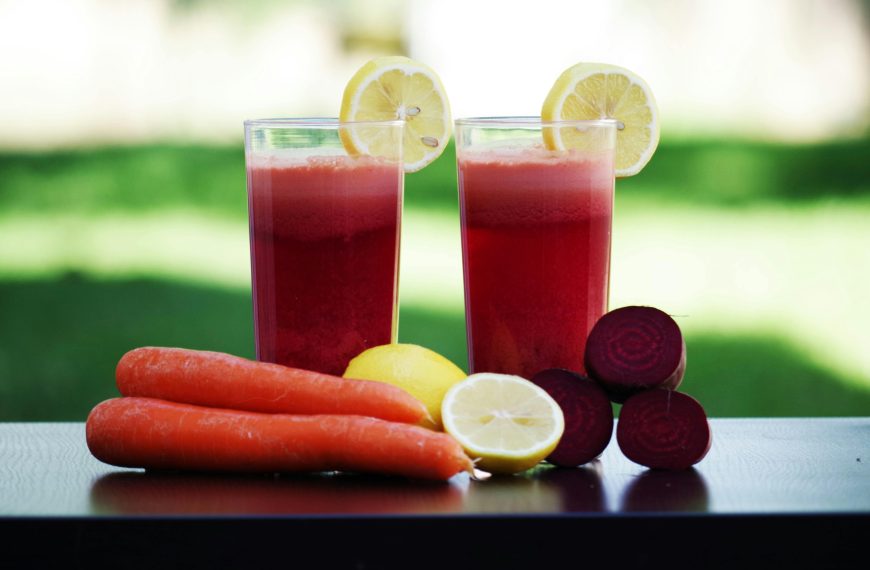In today’s fast-paced society, where processed foods dominate store shelves and convenience often takes precedence over nutrition, establishing a kitchen has become increasingly important for those looking to lead a healthier lifestyle. An organic kitchen goes beyond using ingredients; it involves adopting a holistic approach to cooking and eating that emphasizes fresh, unprocessed foods while minimizing exposure to harmful chemicals and additives. This article will delve into ingredients and suggestions for setting up a kitchen that promotes overall well-being and energy.
Organic Fruits and Vegetables: At the heart of every kitchen lies the inclusion of fruits and vegetables. Opting for organic ensures avoidance of pesticides, synthetic fertilizers, and GMOs. When choosing produce, give preference to locally sourced items as they tend to be fresher, tastier, and have a lower environmental impact. Incorporate a variety of fruits and veggies on your plate to ensure a spectrum of nutrients.
Whole Grains: Whole grains are packed with fiber, vitamins, and minerals that provide lasting energy while supporting health. Fill your pantry with options such as quinoa, brown rice, oats, barley, and whole wheat flour. Try out different types of grains to bring diversity to your meals, whether it’s through grain bowls, freshly baked bread, or delicious pastries.
Beans and Legumes: Beans, lentils, and chickpeas are sources of plant-based protein, fiber, and vital nutrients. Make sure to have both canned and dried options available for easy meal preparation. Add them to soups, salads, stews, or dips for a nutritional boost.
Good Fats: Keep a variety of sources of fats in your pantry like extra virgin olive oil, coconut oil, avocado oil, nuts, and seeds. These fats play a role in brain health, hormone balance, and the absorption of soluble vitamins. Use them for cooking or as toppings on salads and smoothie bowls.
Spices and Herbs: Not only do herbs and spices enhance the flavor of your dishes, but they also offer impressive health benefits. Stock up on choices like turmeric, ginger, garlic powder, basil, cilantro, rosemary, and cinnamon in your spice collection. Experiment with combinations to elevate your cooking experience while benefiting from the antioxidant properties these culinary treasures provide.
Natural Sweeteners: Cut back on sugars by incorporating natural sweeteners into your recipes. When looking for sweeteners, consider choices such as honey, pure maple syrup, coconut sugar, and dates. These alternatives not only add sweetness but also offer extra nutrients and have a lower glycemic index, making them a better option for satisfying your cravings for something sweet.
Dairy Products: When it comes to dairy products, opt for organic options like milk, yogurt, cheese, and butter if you consume dairy. Organic dairy products are sourced from cows that are raised without hormones or antibiotics, making them a cleaner and more environmentally friendly choice. Alternatively, you can try plant-based alternatives such as almond milk, coconut yogurt, and cashew cheese.
Proteins: For proteins in your diet, whether you prefer meat, seafood, or vegetarian options, aim for sustainably sourced sources of protein. Consider choosing grass-fed beef, free-range poultry, wild-caught fish, or pasture-raised eggs. Plant-based protein sources like tofu, tempeh, seitan, or edamame are also options that provide amino acids without the saturated fat and cholesterol typically found in animal products.
Condiments and Sauces: When using condiments and sauces to enhance the flavor of your dishes, be mindful of their ingredients. Many conventional options contain additives, preservatives, high levels of sodium, and sugar that may not be ideal for your health. Choose versions of condiments like ketchup, mustard, soy sauce, salsa, and hot sauce to reduce your intake of additives while elevating the flavor of your meals.
Superfoods and Specialty Ingredients: Dive into the realm of superfoods and unique ingredients to bring a variety of nutrients and excitement to your kitchen. Incorporate items such as chia seeds, hemp hearts, spirulina, nutritional yeast, and goji berries into your dishes and snacks for an added dose of vitamins, minerals, and antioxidants.
Building a kitchen goes beyond what you purchase—it also involves how you prepare and enjoy your food. Embrace mindful eating habits like relishing each bite and tuning in to your body’s cues for hunger and fullness. Reduce food waste by planning meals using leftovers innovatively and composting scraps. By developing a connection with your food and its sources, you’ll not only fuel your body but also contribute to a more sustainable and eco-friendly food cycle.
Establishing a kitchen is a stride toward fostering a healthier way of living. By prioritizing ingredients and limiting exposure to harmful substances or artificial additives, you can relish delectable meals that not only feed your body but also nurture your well-being on every level.
Start your adventure toward a flourishing kitchen with these key elements and suggestions at your disposal.









